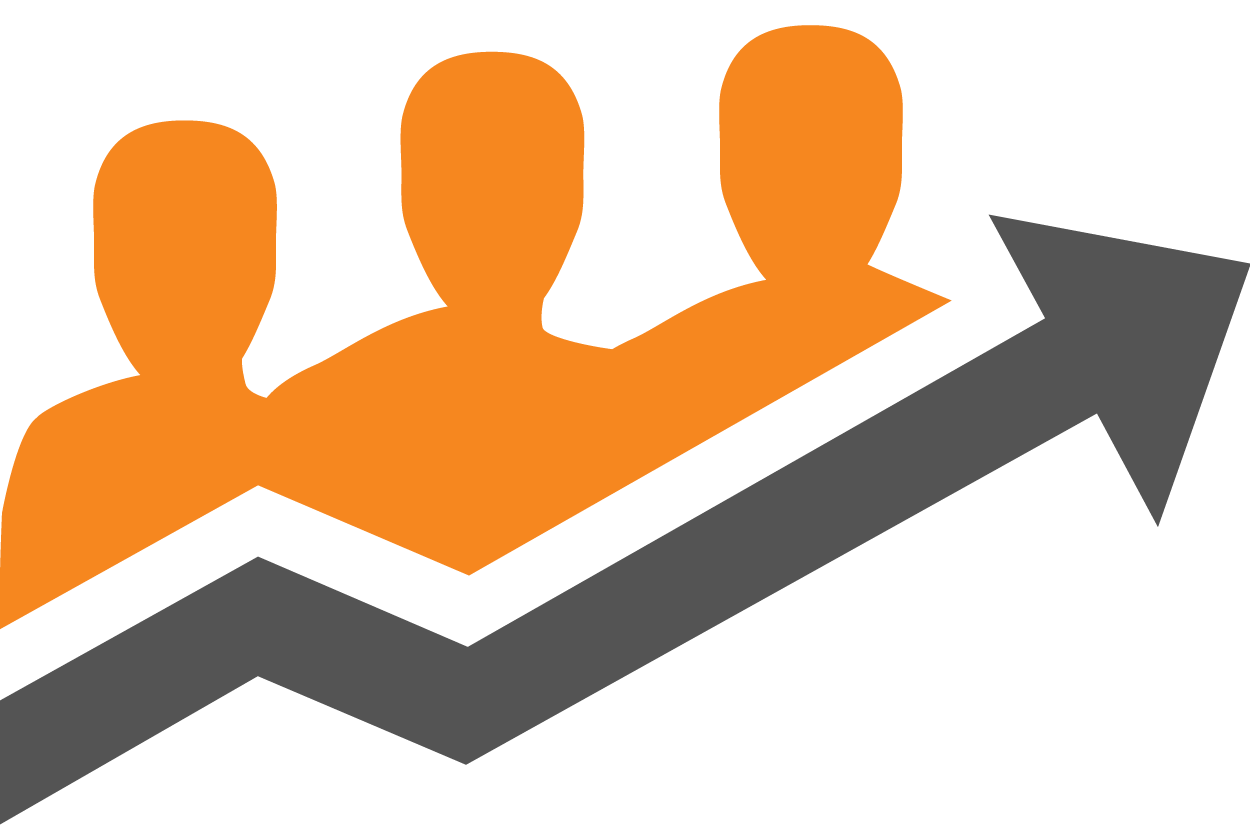Penggunaan Telemonitoring Meningkatkan Kualitas Layanan Keperawatan : Tinjauan Literatur
Abstract
Introduction: Telemonitoring improves quality nursing care, its make decisions quickly and accurately based on the signs and symptoms of patients who are monitored everyday. The use of telemonitoring also has the potential to increase nurse productivity, where documentation time is reduced so that nurses have more time doing patient care activities. Purpose: Provide an overview and ideas of the benefits of telemonitoring in various diseases that facilitate observation and save nurses' time in improving the quality nursing care through literature review.Discussion: Results of review from 10 selected journals, concluded that the use of telemonitoring at home and hospitals in various disease mostly feasible to apply, although in some studies there are no significant differences between telemonitoring and without telemonitoring. Recommendation: Examine the effectiveness of the use of telemonitoring in specific diseases can be done by subsequent researchers.
Keywords: Telemonitoring, Quality Nursing Care, Nursing Time
Full Text:
PDFReferences
Alves, D. S., Times, V. C., da Silva, É. M. A., Melo, P. S. A., & Novaes, M. d. A. (2020). Advances in obstetric telemonitoring: a systematic review. International Journal of Medical Informatics, 134, 104004. Retrieved from http://www.sciencedirect.com/science/article/pii/S1386505619303764. doi:https://doi.org/10.1016/j.ijmedinf.2019.104004
Anttalainen, U., Melkko, S., Hakko, S., Laitinen, T., & Saaresranta, T. (2016). Telemonitoring of CPAP therapy may save nursing time. Sleep and Breathing, 20(4), 1209-1215. Retrieved from https://doi.org/10.1007/s11325-016-1337-9. doi:10.1007/s11325-016-1337-9
Buysse, H. E. C., Coorevits, P., Van Maele, G., Hutse, A., Kaufman, J., Ruige, J., & De Moor, G. J. E. (2010). Introducing telemonitoring for diabetic patients: Development of a telemonitoring ‘Health Effect and Readiness’ Questionnaire. International Journal of Medical Informatics, 79(8), 576-584. Retrieved from http://www.sciencedirect.com/science/article/pii/S1386505610001115. doi:https://doi.org/10.1016/j.ijmedinf.2010.05.005
Fasterholdt, I., Gerstrøm, M., Rasmussen, B. S. B., Yderstræde, K. B., Kidholm, K., & Pedersen, K. M. (2018). Cost-effectiveness of telemonitoring of diabetic foot ulcer patients. Health Informatics Journal, 24(3), 245-258. Retrieved from http://uindonesia.summon.serialssolutions.com/2.0.0/link/0/eLvHCXMwjV1ZS8QwEB7WE0HEE9eLvij4UG2T9HoSUZdF0IdlVXwq3Ryw4G7FtqD_3pltuuoK4msISRgyR-abbwLA2ZnnztgEJU2imZHoz0SQiEHia9-IxBcYEAseEjm5d588P0a9bnzbgnFDjbECLc6oygoPOLHdpOyUnD63mOM5ajvhfYwgMI6PiouqHKV18rv5Y4NGCK2uRgR0SyqP_HAbstscLKAnE6gmC5ed3lN_aspRGXhNT_Jc2uAL5_y15w-_Zhn7i8QsqYpvDquzDms20nQu66uxAS093oTlO4ulb8KSTRRswfVVXpRuXdlhjZ-TG6dEjzSaqDzl_mikTtQOpWPyvHSqF6nfHNuYtdiGh85N_6rr2t8VXMlExFxfKS_MGI-MxDBBJlHmZ1obEXhhPEi4NlxmguMI85TKQn8gJVMBPsSjwBiDgcwOrGZUhT8uJ2w9tQuOGlD7HYaGK4yFb2RmAhV6kviuGgPFoA2njZDS17qbRurbhuOzAm3DCUkxba7AHxOPazlPl2RpwVIvjQOyOIQbJ2n5XrZhd2Yehn48xsX43n_32ocVjJjiusjsAObLt0ofwko1pK9XdDHMjuwV-gQxDdxF. doi:10.1177/1460458216663026
Hwang, D., Chang, J. W., Benjafield, A. V., Crocker, M. E., Kelly, C., Becker, K. A., . . . Derose, S. F. (2018). Effect of Telemedicine Education and Telemonitoring on Continuous Positive Airway Pressure Adherence: The Tele-OSA Randomized Trial. American Journal of Respiratory and Critical Care Medicine, 197(1), 117-126. Retrieved from https://search.proquest.com/docview/1984635079?accountid=17242. doi:http://dx.doi.org/10.1164/rccm.201703-0582OC
Izumi, S., Baggs, J. G., & Knafl, K. A. (2010). Quality nursing care for hospitalized patients with advanced illness: concept development. Research in nursing & health, 33(4), 299-315. Retrieved from https://pubmed.ncbi.nlm.nih.gov/20572095 https://www.ncbi.nlm.nih.gov/pmc/articles/PMC3241609/. doi:10.1002/nur.20391
Jeong, S., Choi, H., Gwon, S. H., & Kim, J. (2018). Telephone support and telemonitoring for low-income older adults. Research in Gerontological Nursing, 11(4), 198-206. Retrieved from http://uindonesia.summon.serialssolutions.com/2.0.0/link/0/eLvHCXMwpV1Lb9QwEB7xkFAlxLs0UJAvHA1xYjv2CSpEVSEe0qpUcLL8WmkP3V2aXdGfz4yTtLRIXLjk4EhxMt9k_I09D4C2eV3zazZBm4yKgb6CiUZo28SQZZulio31OZWEudkX--Okmx2Zj2NwIaXGjHBPVrKY7rSKtGtOeyOtkp2u5dv1T059pOi8dWyqcRNuo3UWpPnd7GSyzbptS2819NxrLm0jhmQ65AjmDY3REOqNMLUqgblXF6u_GCiVF42r9bb_Y0k6vH8ROnKWUdqZl5JPCxIPqtfVWo__9YkP4N5IWtnBoGUP4UZePoI7n8dj-cfw7hgXLwpyz4y6hCKjZ36ZGI2eFptBm4cM6TH7tPrF0SStTjP7Sv3B2QHV_-ifwLfDD8fvj_jYmoFHZBCKKx0aI2S0Xqh5SJ21HplVRO8spWQVakY2Nvpcm9QGG0IUSaYggm11brxK7S7c9RTCv9yUVL-0ByzqRiof5jYqL5G4-JSVV51PIpo0n-cK-ASGWw-lOBy6MASem8BzE3iuFhXsT0J144_Zu0uJVvB0QPHiYQ1Ss87UuoJqgPXyTjmhN1apCl5dv-d6nM0ZopJGG2OF25xvnv178uewQ286xP3uw63N2Ta_gJ3tglq45H7hXxa9pev37jdI6fna. doi:10.3928/19404921-20180502-01
Koulaouzidis, G., Iakovidis, D. K., & Clark, A. L. (2016). Telemonitoring predicts in advance heart failure admissions. International Journal of Cardiology, 216, 78-84. Retrieved from http://www.sciencedirect.com/science/article/pii/S0167527316308282. doi:https://doi.org/10.1016/j.ijcard.2016.04.149
Lee, J. Y., Lee, S. W. H., Nasir, N. H., How, S., Tan, C. S. S., & Wong, C. P. (2015). Diabetes telemonitoring reduces the risk of hypoglycaemia during Ramadan: a pilot randomized controlled study. Diabetic Medicine, 32(12), 1658-1661. Retrieved from https://onlinelibrary.wiley.com/doi/abs/10.1111/dme.12836. doi:10.1111/dme.12836
Nursalam. (2003). Proses dan Dokumentasi Keperawatan. Jakarta: Salemba Medika.
Maric, B., Kaan, A., Ignaszewski, A., & Lear, S. A. (2009). A systematic review of telemonitoring technologies in heart failure. European Journal of Heart Failure, 11(5), 506-517. Retrieved from https://onlinelibrary.wiley.com/doi/abs/10.1093/eurjhf/hfp036. doi:10.1093/eurjhf/hfp036
Monahan, M., Jowett, S., Nickless, A., Franssen, M., Grant, S., Greenfield, S., . . . McManus Richard, J. (2019). Cost-Effectiveness of Telemonitoring and Self-Monitoring of Blood Pressure for Antihypertensive Titration in Primary Care (TASMINH4). Hypertension, 73(6), 1231-1239. Retrieved from https://doi.org/10.1161/HYPERTENSIONAHA.118.12415. doi:10.1161/HYPERTENSIONAHA.118.12415
Moore, E. C., Tolley, C. L., Bates, D. W., & Slight, S. P. (2020). A systematic review of the impact of health information technology on nurses' time. Journal Of The American Medical Informatics Association: JAMIA. Retrieved from http://search.ebscohost.com/login.aspx?direct=true&db=mnh&AN=32159770&site=ehost-live. doi:10.1093/jamia/ocz231
Mortara, A., Pinna, G. D., Johnson, P., Maestri, R., Capomolla, S., La Rovere, M. T., . . . on behalf of the, H. H. H. I. (2009). Home telemonitoring in heart failure patients: the HHH study (Home or Hospital in Heart Failure). European Journal of Heart Failure, 11(3), 312-318. Retrieved from https://doi.org/10.1093/eurjhf/hfp022. doi:10.1093/eurjhf/hfp022
Mussi, F. C., Palmeira, C. S., Santos, C. A. d. S. T., Guimarães, A. C., Lima, M. d. L., & Nascimento, T. S. d. (2019). Effect of nursing telemonitoring on the knowledge of obese women: clinical trial. Revista brasileira de enfermagem, 72(suppl 3), 212-219. Retrieved from http://uindonesia.summon.serialssolutions.com/2.0.0/link/0/eLvHCXMwpV1LS8NAEF58IBTE96NaZX-AsWk2u5t4ERFL8SBStOgp7Ca70INN7eP_O7PZplXQi5dAQpIlM5N57cw3hLDoOgx-6AQBYsMSDfbQWHAych7rNFexVJFiqtAOh_4pfR_Ifi959MWF2Brj2b3Qkk51F2WOWfN2xFgsGVgweTv-DHCOFO63-qEa62QTtHMHJV_2BysS5yoRl-ccojFR7zvgKJpq5gHDKkUhPU4RT8N2fQ0Eq5MEIcemuFVb9ouD6gxVd7cuKJkY4IEJHBDUEIkGQvcdAfJfH75HdrwrS-8q2dsna2Z0QLZ8-uGQPFfAyLS01NcX0BnYuA-nRDCbSMsRBfeT1mk9vLXUZmqow4W4oYu2TepmixyR1-7Dy30v8PMbAohauIDQ1HZizXiiQqkKJWMLdGQaPE5hi0jzIklABHJQKbniXDOmC4hmuWJChblKQnZMthXW-Y9mrh-wOCXU2jA1nQL0dAyBUC5UzIQR1kBUB66HtU1ytWBJNq7wOjKMc2BlhEGNM-RghhzMkINN0lqQOPM_7zRb0rdJTipW1u_CZnPwCcXZ3w-ekwaskVa5mhbZmE3m5oI05kMc0WKmQ3Xp5BKPb_ILRTLr6A. doi:10.1590/0034-7167-2018-0500
Walker, P. P., Munaro, G., Marušič, D., Sepper, R., Rosso, R., Siriwardena, A. N., . . . Šonc, S. (2018). Telemonitoring in Chronic Obstructive Pulmonary Disease (CHROMED): A Randomized Clinical Trial. American Journal of Respiratory and Critical Care Medicine, 198(5), 620-628. Retrieved from https://search.proquest.com/docview/2110261034?accountid=17242. doi:http://dx.doi.org/10.1164/rccm.201712-2404OC
DOI: http://dx.doi.org/10.32883/rnj.v3i2.865
DOI (PDF): http://dx.doi.org/10.32883/rnj.v3i2.865.g315
Refbacks
- There are currently no refbacks.







